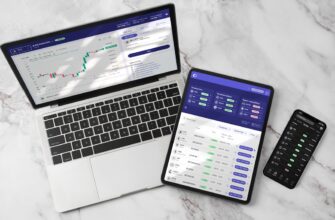- Understanding DeFi Yield Taxation in Brazil
- Step-by-Step Guide to Reporting DeFi Yield
- Essential Documents for Compliance
- Top 5 Reporting Mistakes to Avoid
- Pro Tips for Efficient Tax Reporting
- Frequently Asked Questions (FAQs)
- Is DeFi yield taxed differently from other crypto in Brazil?
- Can I deduct DeFi transaction fees?
- What if I earn yield in stablecoins?
- How does Receita Federal track DeFi activity?
- Are there tax treaties for foreign DeFi platforms?
- What penalties apply for underreporting?
Understanding DeFi Yield Taxation in Brazil
Decentralized Finance (DeFi) yield—generated through staking, lending, liquidity mining, or other protocols—is considered taxable income by Brazil’s Federal Revenue Service (Receita Federal). Under Normative Instruction 1,888/2019 and Law 8,981/1995, all crypto earnings, including DeFi rewards, must be reported annually. Failure to comply can result in penalties of up to 20% of owed taxes plus monthly interest. Unlike some countries, Brazil taxes yield at the moment of receipt, not just upon conversion to fiat.
Step-by-Step Guide to Reporting DeFi Yield
- Calculate Your Earnings: Sum all DeFi rewards received in 2023 (staking interest, LP tokens, etc.), converting each transaction to BRL using the exchange rate on the day of receipt.
- Determine Tax Rate: Apply progressive income tax rates: 15% for earnings under R$5,000/month, 22.5% above. Note: Yields exceeding R$28,559/year may trigger additional 15% capital gains tax.
- Prepare Documentation: Gather wallet addresses, transaction IDs, platform statements, and BRL conversion records.
- File DIRPF (Annual Tax Return): Report under “Rendimentos Sujeitos à Tributação Exclusiva/Definitiva” in the April 2024 filing window. Use code “17” for crypto earnings.
- Pay Outstanding Taxes: Settle dues by April 30th via GRU (Guia de Recolhimento da União).
Essential Documents for Compliance
- Complete transaction history from DeFi platforms (e.g., MetaMask logs)
- Proof of BRL conversion rates (Central Bank or reliable exchange data)
- Records of gas fees and other deductible costs
- Wallet reconciliation reports showing yield accruals
Top 5 Reporting Mistakes to Avoid
- Ignoring Small Yields: All earnings—even under R$1—must be declared.
- Incorrect Timing: Tax triggers upon receipt, not when selling tokens.
- Miscalculating Conversions: Using monthly averages instead of daily rates.
- Overlooking Foreign Platforms: Global DeFi activity is fully reportable.
- Missing Deadlines: Late filings incur 1% monthly fines.
Pro Tips for Efficient Tax Reporting
- Use crypto tax software like Koinly or Cointracker for automated BRL conversions
- Consult a contador (accountant) specializing in crypto taxation
- Maintain real-time records via spreadsheets or dedicated apps
- Set aside 15-25% of yields monthly for tax obligations
Frequently Asked Questions (FAQs)
Is DeFi yield taxed differently from other crypto in Brazil?
No—all crypto earnings fall under the same income tax rules. However, frequent yield generation may classify you as a professional trader, subject to higher rates.
Can I deduct DeFi transaction fees?
Yes. Gas fees, platform costs, and operational expenses directly linked to yield generation are deductible from taxable income.
What if I earn yield in stablecoins?
Stablecoins like USDC are treated identically to volatile crypto. Convert rewards to BRL using the receipt-date rate.
How does Receita Federal track DeFi activity?
Through exchange KYC data and blockchain analysis tools. Since 2023, Brazilian exchanges must report user transactions monthly.
Are there tax treaties for foreign DeFi platforms?
Brazil has no crypto-specific treaties. Earnings from platforms like Uniswap or Aave remain fully taxable domestically.
What penalties apply for underreporting?
Minimum 75% fine on unpaid taxes plus 1% monthly interest. Deliberate evasion may trigger criminal charges under tax evasion laws.








